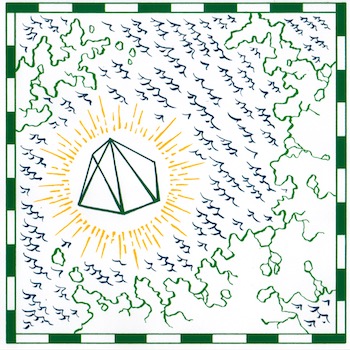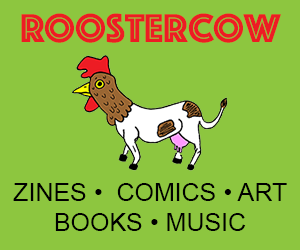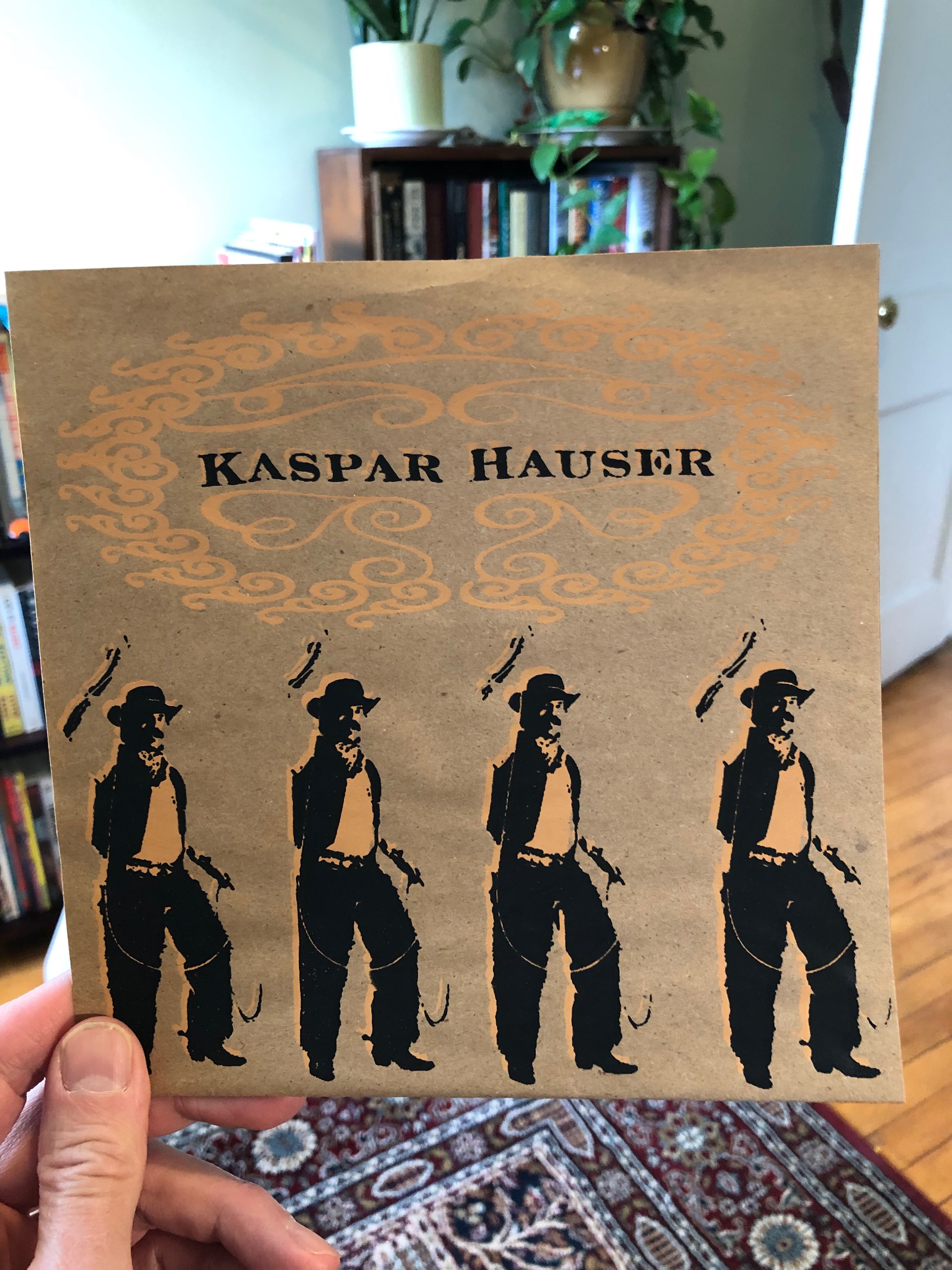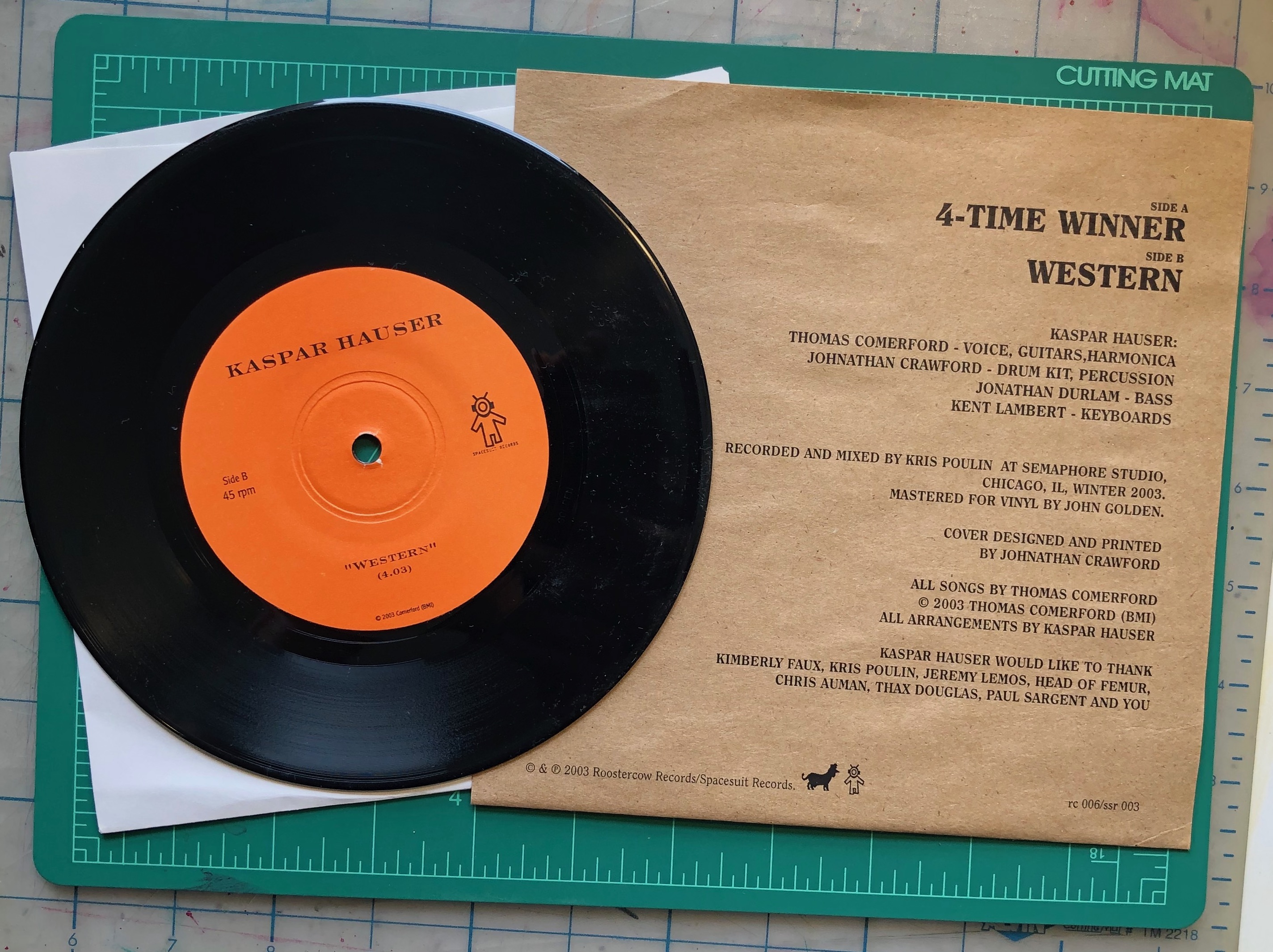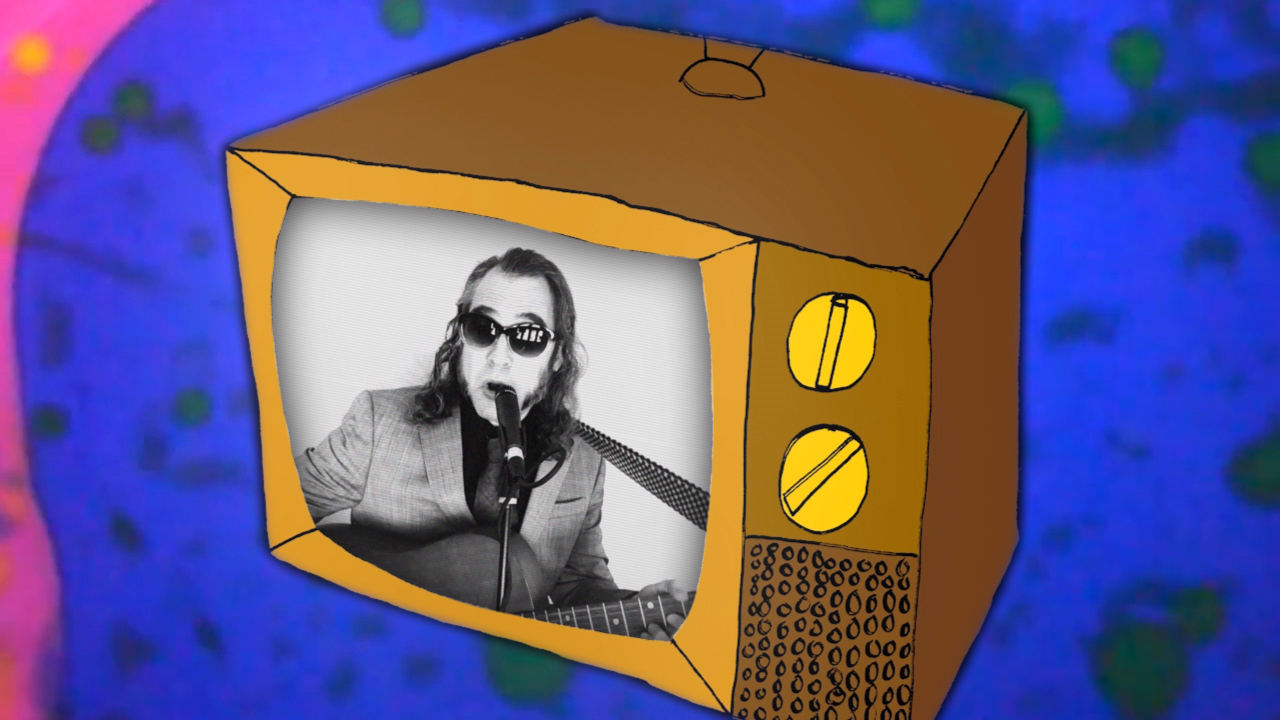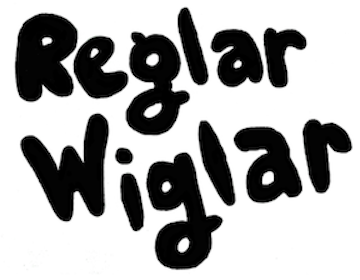|
Musician & filmmaker An Interview withTHOMAS COMERFORDPublished 2023
Singer/songwriter and filmmaker Thomas Comerford has lived and worked in Chicago since 1999. During his nearly quarter of a century in town, he has released four solo albums in addition to the four albums he released with his previous band Kaspar Hauser, plus a handful of singles for both projects. Comerford plays the Hideout on May 19th to support of the release of his new single with backing band Mar Caribe who themselves are celebrating the release of their third full-length album Caribe Funeral Home.—Chris Auman REGLAR WIGLAR: The last time I interviewed you for the Reglar Wiglar was in 2011 and your band was Kaspar Hauser. I reread that interview today, and in it, you mentioned that you were thinking about working with a revolving lineup of different musicians as opposed to playing in a band. You followed through with that and have since recorded and released four albums under your own name. What are the advantages of freeing yourself from the band dynamic? THOMAS COMERFORD: It's interesting — a number of songs recorded across the four LPs (plus the handful of singles) have sought to recreate the band dynamic, even if it's a temporary band assembled for the purpose of learning songs and recording them or playing them live. I guess I can't really get away from it completely, and I really like the feeling of playing with a bunch of people in a room. The exception would probably be Introverts in which basic tracks were recorded (drum kit and bass guitar) and then the songs were arranged in the studio with a wide array of guests on top of that. But Blood Moon and Archive + Spiral were basically arranged, rehearsed and recorded mostly live with a band in the studio; and now that I've started recording again, I'm going for that approach — the 2-song 7" just out was tracked live with Mar Caribe backing me at Electrical; we only overdubbed the vocals on that; and the new batch of tunes I've started recording with my live group is mostly live full-ensemble playing — but here and there will be overdubs where needed. I always do vocals separately. So maybe when I said that back when it was more that I was looking to expand the array of players, so a band in place for the song at hand could be flexible and change. Which is funny, too, because there was so much turnover in Kaspar Hauser that I was already kind of working that way. But I have never claimed to know what I'm doing.
RW: Any disadvantages? I would think it could be harder to put a touring band together. TS: It is harder to put a touring band together. But I've had good luck with that when I have had the wherewithal to tour. The most recent tour in 2019 was great and formed the basis of the current group I'm playing shows with and recording with — the core being Erik Sowa on drums, Dan Ingenthron on bass guitar and Kip Rainey on electric guitar. RW: How do you find musicians to play with and do you make a deliberate attempt to change the lineup every time? TC: I don't think it's too deliberate necessarily — it does have to feel right when we play. A few times, it's happened that someone has to step away and so I find someone new and then that works out really well, so I stick with it. I guess when I toured in 2019 that kind of happened, as I was playing with a few different lineups for a spell between 2016-2019, but when I finished Blood Moon I put together a band specifically to play those songs, so the live the lineup changed, built on people I had recorded with which then morphed into the group I toured with in 2019; and then the band that had played with me a lot from 2016-2018 morphed into my Velvet Underground tribute band, Another VU, which is really fun, and we play very well together. I wish I could say there is a master plan, but there is not. I am pretty organized in getting things done, but I'm not very calculating — I'm usually going with my gut from show to show and song to song. RW: I would imagine that this approach keeps things interesting for you and ultimately benefits the songs. Is this the way you’ll continue to make music? TC: I feel like I'm learning so much about music all the time as I keep doing it, and so I would say that it is the music that is guiding my approach. Though since the pandemic, I'd say that I'm definitely re-evaluating how I want to do music. For now, I've become less enchanted with playing a lot of shows and more focused on the writing and arranging and practicing and recording side of it. I still like to play shows and want to play them, but I don't think I want to do it with the kind of intensity I had going probably for about 10 years 2009-2019 where it seemed I was playing 1-2 shows/month. That was quite valuable in terms of growing as a singer and performer, but it does become harder to focus on writing and arranging when so much time and energy has to go into practicing and performing for shows which can get quite repetitive and stifling. RW: Your new single, “Spell of Protection” b/w “Those Who Fear Tomorrow” features the instrumental Chicago band, Mar Caribe, how did that come about? TC: Tommy McGettrick (leader/composer/arranger of Mar Caribe) has played steel and guitar with me a lot since 2014; and Kip Rainey plays guitar in Mar Caribe and has been playing guitar live with me since going on my 2019 tour, so it was easy to think about doing something with Mar Caribe. We started talking about it in 2020, but the pandemic caused about a year delay in doing anything. I also have done a trio version of my music with those two over the last few years, so we have had up to two sets worth of material we can play together, including the two songs for the single. So in expanding to Mar Caribe, it was a matter of fleshing out the arrangements for the full group from the trio format, writing horn parts, et cetera. RW: Were the songs written with this specific collaboration in mind? TC: Since it took me so long to finish Introverts and Blood Moon, which both started in 2015 and were finished in 2018 and 2021, I've been accumulating "new" songs for a while that I haven't had the resources to do anything with until more recently. So those two were songs that I wrote just as songs — trying particular ideas/things out. I think I even wrote "Spell" for the songwriter series at Lagunitas Tap Room — when appearing at that series, Matt Gandurski would ask the songwriters to debut a new song each time. Anyway, when Kip, Tommy and I looked at all the songs that we were doing as a trio, those two seemed like a good match for the full Mar Caribe/horn section treatment, so that's how we picked them. We've since re-arranged other tunes of mine from recent LPs for live shows as I've guest-appeared with them a few times in the last year. RW: Is the music on the single a sign of what we can expect on the next record if there is indeed a full-length recording in the works? TC: Not exactly. I do think I'll try to do more material with Mar Caribe as time and resources allow, but the songs I started recording last month at Kingsize with Mike Hagler are more focused on the sounds and interplay of the regular live band — which sound to me, at times, like IRS-era REM, Robyn Hitchcock with touches of Tom Verlaine, Richard Thompson/Sandy Denny, The Only Ones and maybe Coney Island Lou. Though we just did four songs, so I'm not sure if I'm making a long-player yet — I definitely have enough new material to make one, but the cost of making records means that everything takes a while ... I hope to be making LP #5 for sure! RW: Your previous full-length, Introverts, was released in 2021, I was curious if that was recorded before or during the lockdown, and if so, how that may have affected the songs on the record or maybe at least on getting the record pressed? TS: I mentioned before but that record took a long time to make — I started recording it in 2015, blissfully unaware of COVID-19 like many people. But obviously I was still working on it in 2020 and I had to set it aside for awhile in 2018-19 as I finished up Blood Moon and then go on a tour. The pandemic did affect it in some ways — Robbie Hamilton (LP producer) and I were mostly working on it just the two of us towards the end, and during high lockdown Robbie was mixing songs and sending them to me for notes/changes, so we were able to adjust since the project was at that stage. But things went pretty quickly as far as mastering, pressing — I think the LP was mastered by September 2020 and pressed by February or March 2021 by Smashed Plastic. And then I was able to play a real release show in June 2021 when people started venturing out again though around then it definitely felt odd to be in a crowded room full of people. RW: It sounds like you were able to stay productive during the lockdown. What else did you do to keep busy? TC: Early on I wrote a lot of songs — some of which I'm recording now, but there are still many more on the pile. I also recorded and released two quarantine singles ["Steel Trap" / "Our Valley"]where I made a home recording and then the live band all added their parts in their home studios. I'm sure I could have been even more productive, but it was spending more time at home with my family that made me realize I wanted to do a bit more of that going forward, so I've had a slight shift there as things have opened back up — in tandem with what I talked about earlier in terms of how I want to do music these days. I also stopped drinking during the summer of 2020 — and the connection between drinking and getting up on a stage had always been there before — the two seemed inseparable to me. Now that that's changed, too, I think I'm doing music differently — I'm more focused — I'm a better listener, a better singer and a better player. But it also means I'm less interested in hanging around at bars whether I'm playing a show or not. RW: You are a filmmaker as well. When we last talked you had just finished a short film, Indian Boundary Line. Have you done any other film work since then or is music the primary focus now? TC: After touring with The Indian Boundary Line in 2010 and 2011, I did make a hard left turn into spending a lot more time making music. That's what made sense to me at that time — and I do look at music as my primary artistic concern. But I've been teaching a lot more 16mm filmmaking in recent years, and that's gotten me back into my love of shooting celluloid film and making images in that medium. In 2020, AZITA asked me to make a music video for her which we shot entirely on 16mm, and it turned out really well. So I re-discovered what I loved about making films — which is almost like a photography practice — looking and taking pictures. I have started shooting with a pinhole movie camera again, too, which is something I was doing in the '90s and early '00s. There are a couple things in the works, but they are moving at a glacially slow pace, but I'm confident I'll have a few things to show in the next few years. RW: Thanks, Tom! MORE Visit Thomas Comerford's website.
Read more REGLAR WIGLAR INTERVIEWS: Baltimore's mellow yet dynamic duo, Smoke Bellow Your comics artist in the Ozarks, Michael Sweater Mini-comic Mastermind, Brandon Lehmann Acid Nun creator, and horror afficianado, Corrine Halbert Comic creator & Gnar Dude, James the Stanton Punk comic strip workhorse, Ben Snakepit Real live zine action hero, Liz Mason Santos Sisters tag team, Greg & Fake and Marc Koprinarov Comics artists and Cola Pop Creemee's Manager, Desmond Reed
|
|---|
|
|






